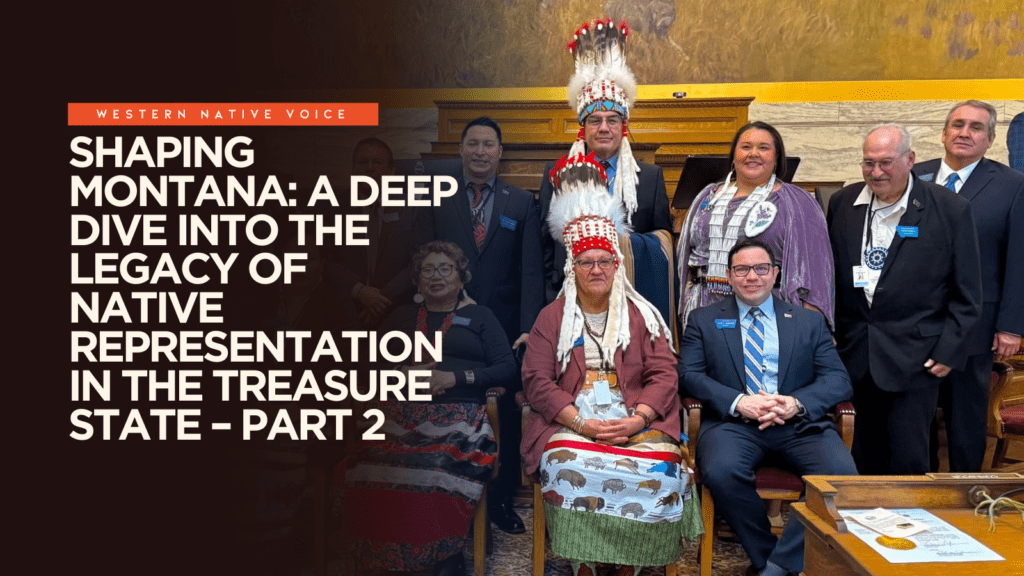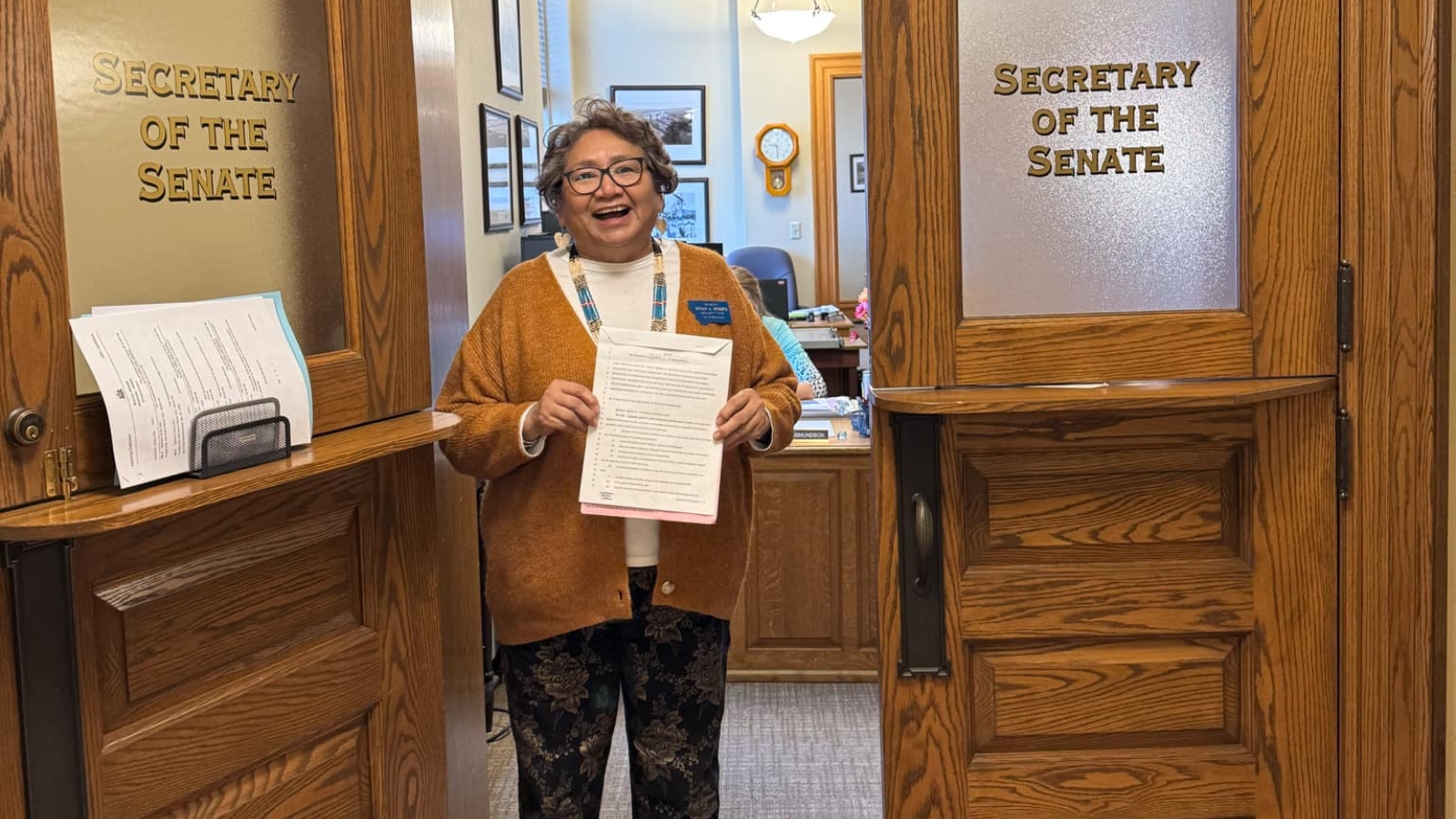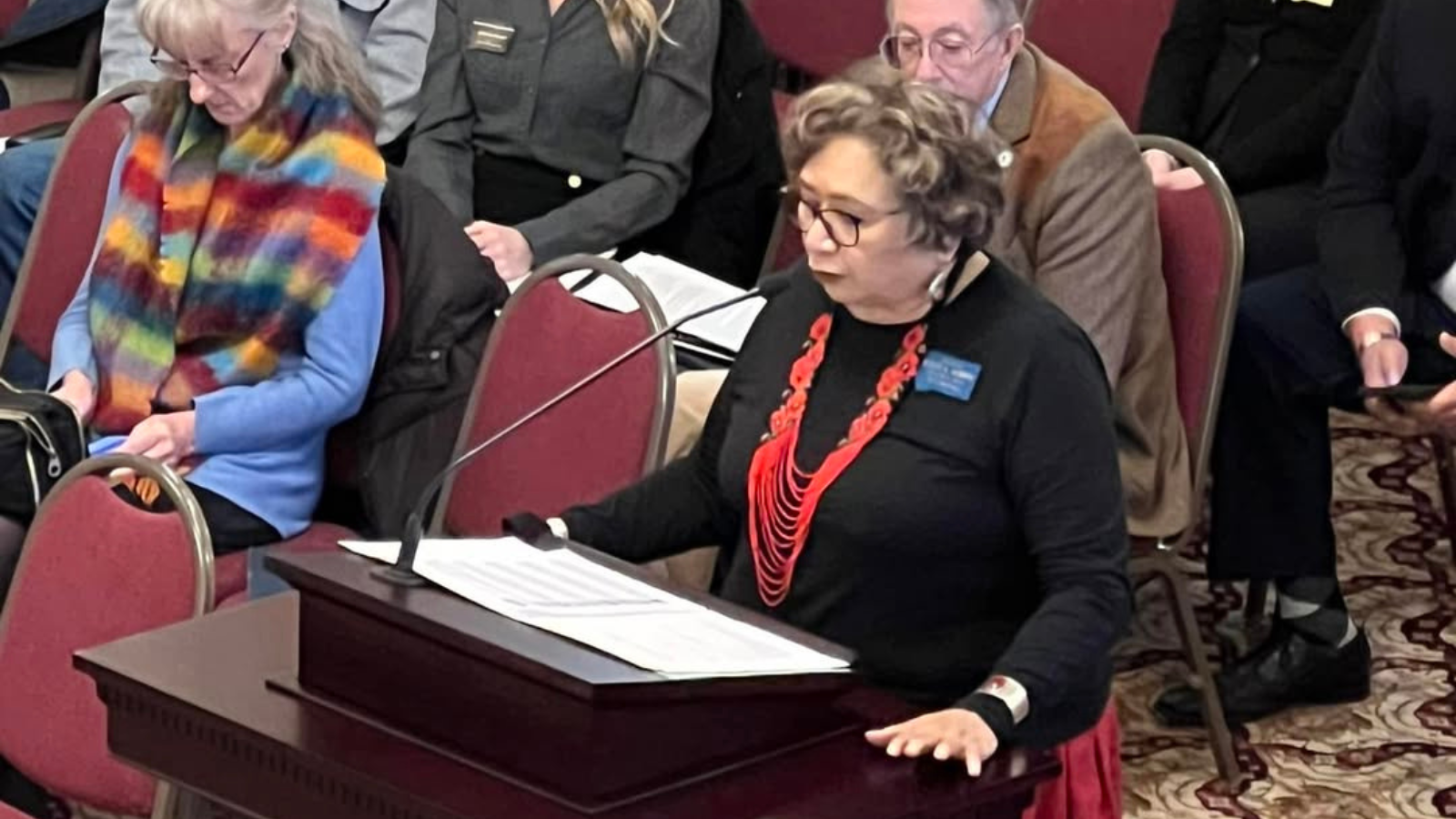
Strengthening the Voice: The Modern Era of American Indian Representation in Montana
This article is part of a two-part series exploring the history and impact of Native leadership in Montana’s state government. Part 1 covers the early years and the foundation of Native representation, while Part 2 highlights the modern era and the continued rise of Native lawmakers.
MONTANA—The 21st century has seen a dramatic increase in Native representation in Montana’s government. Once a struggle for inclusion, Native leadership has transformed into a force that shapes state policies, advances Native issues, and asserts the power of Native communities.
A Growing Presence in the Legislature
Native lawmakers in Montana have steadily gained ground, bringing new voices to the statehouse each election cycle. This shift from advocacy to leadership has secured lasting policy changes in education, economic development, and public safety. Carolyn Pease-Lopez (Northern Cheyenne Tribe), Rae Peppers (Crow Tribe), and G. Bruce Meyers (Rocky Boy Tribe) helped secure funding for tribal programs, while Jason Small (Northern Cheyenne Tribe) and Shane Morigeau (Confederated Salish and Kootenai Tribes) have led efforts in public safety, environmental policy, and voting rights.
With Native Americans making up about 6.7% of Montana’s population (Montana Legislature Statistics) and 12 Native legislators currently serving, Montana has one of the highest rates of Native representation in the country. The Montana American Indian Caucus plays a critical role in ensuring Native issues remain at the forefront of legislative discussions.
The Role of Western Native Voice in Mobilizing Change
Organizations like Western Native Voice have helped mobilize Native communities, ensuring voter engagement translates into real political influence. Through advocacy training and grassroots organizing, Western Native Voice works alongside legislators to advance tribal sovereignty, healthcare, and economic development.
A New Generation of Advocates
A new wave of Native lawmakers is building on past successes while tackling urgent issues. They are taking leadership roles in education, sovereignty, public safety, and voter protections.
Education and Healthcare
Jade Bahr (Crow Tribe) has focused on education equity, ensuring Native students receive the support they need. Susan Webber (Blackfeet) has worked to address disparities in healthcare access and public health policy. Jonathan Windy Boy (Rocky Boy) has been a champion for Native language preservation and cultural education, pushing for policies that fund language programs and protect Indigenous identity. Donavan Hawk (Crow Tribe) has focused on labor rights, job training, and economic opportunities for working-class families.
Tribal Sovereignty and Governance
Newly elected legislators such as Thedis Crowe (Blackfeet), Shelly Fyant (Confederated Salish and Kootenai Tribes), and Jacinda Morigeau (Confederated Salish and Kootenai Tribes) are championing policies that strengthen tribal self-governance and increase Native representation in state decision-making. Tyson Running Wolf (Blackfeet) continues to be a strong advocate for tribal sovereignty and economic self-sufficiency, working on policies that support energy development and infrastructure improvements in tribal communities.
Land, Community, and Voting Rights
Environmental protection, public safety, and voting access remain top priorities. Native legislators are fighting for stronger MMIP protections, land stewardship, and expanded voting access to ensure Native voices shape Montana’s future.
The Road Ahead
With each election, Native leaders expand their influence, ensuring policies reflect their communities’ needs. While progress continues, challenges remain in healthcare, education reform, language preservation, and MMIP protections.
The momentum for change has never been stronger. Western Native Voice will continue empowering communities to sustain this progress. Native leaders are no longer just advocating for a seat at the table—they are redefining the conversation and shaping Montana’s future.









